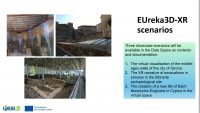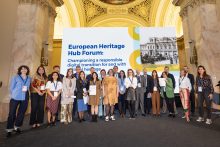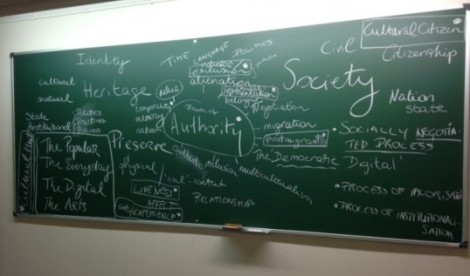
An intense linguistic reflection work
On 13th May i2CAT Foundation, in collaboration with the Universitat Internacional de Catalunya (UIC), organised the first RICHES open to all activity in Barcelona.
The workshop brought together representatives of the RICHES project, academics and students from the UIC, representatives of the Network of Common Interest affiliated in the project and several external experts. This activity focused on building the project’s foundation and establishing an initial agreement of basic definitions and frameworks which will delineate RICHES’ fields of research and further study on the context of change and the role of Cultural Heritage (CH) in the economic and social development in Europe.
More than 50 participants had registered to be part in the several discussion sessions proposed in the workshop’s programme in order to discuss the taxonomy that will represent the common ground of understanding and research of the project.
Although it is impossible to capture the full extent of discussions and perspectives, all the Workshop’s presentations and discussions served to analyse in depth all the topics that RICHES is addressing and proved to be extremely insightful and beneficial both to the attendees and the project’s representatives and researchers.
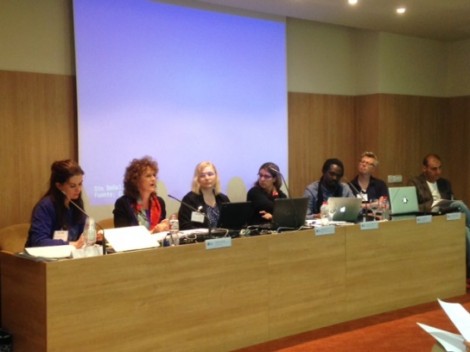
The final discussion
The workshop opened with the welcome speeches of Sergi Fernandez, Head of the Audiovisual Unit of i2CAT, and Teresa Vallès, Dean at the UIC’s Faculty of Humanities; Prof. Neil Forbes of Coventry University, RICHES Coordinator, introduced the project’s framework to the audiences. After a coffee break offered by the University, the participants divided in different groups, each one referring to one of the specific panels that structured the research activity:
- Discussion session 1 – General common terms related to Cultural Heritage/Digital Cultural Heritage – chaired by Neil Forbes of Coventry University (UK). This global and common field of definitions provides the basis to identify the existing practices in the domain of ICT for digital CH;
- Discussion session 2 – Understanding the context of change for tangible and intangible CH – chaired by Laura Van Broekhoven of Leiden’s National Museum of Ethnology (NL). How digital practices are transforming the traditional CH practices of cultural institutions;
- Discussion session 3 – Digital copyrights framework – chaired by Charlotte Waelde of Exeter University (UK). Copyrights laws developed in the analogue era are now causing challenges in the era of the digital;
- Discussion session 4 – Visualisation and Interaction.
Digital presentation and output – chaired by Monika Hagedorn-Saupe of the Stiftung Preussischer Kulturbesitz (DE). Understanding the new technologies and the changes in the process of distribution, circulation, creation and sharing of CH and the practices in which CH is revaluated and reinvigorated;
- Discussion session 5 – Digital Cultural Heritage – chaired by Bahadir Aydinonat of the Turkiye Cumhuryieti ve Turizm Bakanligi (TR). E-books, online catalogues, digital libraries, metadata records and their means in order to respond to current and new users demands;
- Discussion session 6 – Role of CH in European social development – chaired by Dick Van Dijk of WAAG Society (NL). New directions for digital CH in order to contribute to social cohesion, inclusion and represent multicultural practices;
- Discussion session 7 – Impact of CH on European economic development -chaired by Antonella Fresa of Promoter Srl (IT). Defining the many factors and “actors” that constitute the changing context of CH in the economic field and its impact on employment, new economic strategies and alliances in the EU.
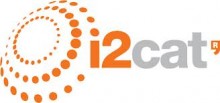 The panel sessions carried on the discussion on the various terms definitions for the all morning. In the afternoon, all the group participants brought back together and the chairmen/chairwomen shared their agreed definitions with the public during a final discussion, in order to validate them.
The panel sessions carried on the discussion on the various terms definitions for the all morning. In the afternoon, all the group participants brought back together and the chairmen/chairwomen shared their agreed definitions with the public during a final discussion, in order to validate them.
The audience had a lively participation and made several suggestions that will be taken into consideration in order to further elaborate and agree on a Taxonomy of Terms and Definitions which will support the project’s research in the future.
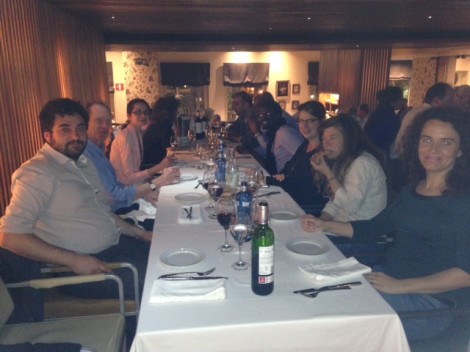
The RICHES Partners’s social dinner
The analysis of different prospective scenarios on the context of change in which European CH is transmitted, its implications for future CH practices and the frameworks that will be put in place – from cultural, legal, financial, educational, technical perspectives – rendered valuable information for future progress in the design of the roadmap for Cultural Heritage practices in the digital age within the project.
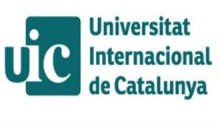 In addition to the workshop’s celebration, the RICHES Consortium Partners joined for internal Plenary Meeting, one day before and after the workshop in order to discuss the work so far undergone, value the workshop’s results and plan their future research and management activities.
In addition to the workshop’s celebration, the RICHES Consortium Partners joined for internal Plenary Meeting, one day before and after the workshop in order to discuss the work so far undergone, value the workshop’s results and plan their future research and management activities.
For more information visit the RICHES website
 RICHES on Twitter: #richesEU
RICHES on Twitter: #richesEU
RICHES on YouTube: www.youtube.com/richesEU


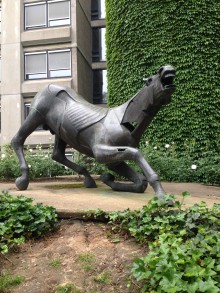
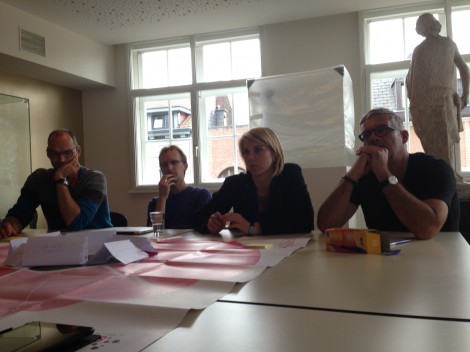
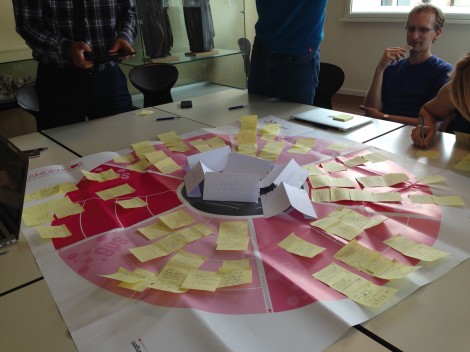
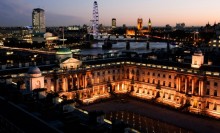
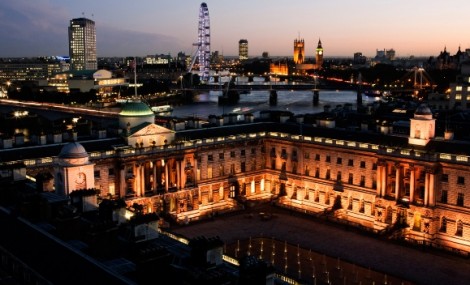
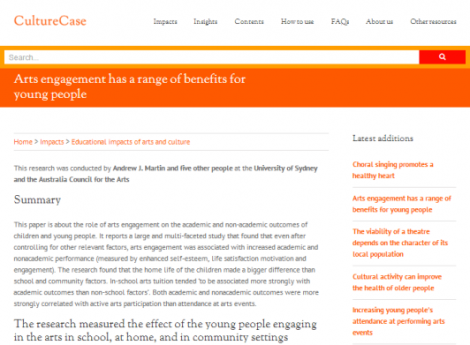 CultureCase is an experiment in research communication. It aims to bridge the gap between academic research and its potential users and beneficiaries, by translating academic research into a form that is easily accessible by practitioners and advocates in the cultural sector. It was developed following wide consultation with the cultural and academic sectors. The Cultural Institute has drawn on the expertise of both academic and cultural sector advisers who have steered the creation of the pilot site.
CultureCase is an experiment in research communication. It aims to bridge the gap between academic research and its potential users and beneficiaries, by translating academic research into a form that is easily accessible by practitioners and advocates in the cultural sector. It was developed following wide consultation with the cultural and academic sectors. The Cultural Institute has drawn on the expertise of both academic and cultural sector advisers who have steered the creation of the pilot site.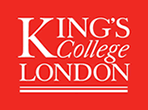 The content on this site is authored and edited by James Doeser, a freelance researcher and writer working with the Cultural Institute, King’s College London. James has a PhD from University College London and spent three years working in the research team at Arts Council England. Through 2014 CultureCase will move to a multi-authored format by developing a cohort of researcher-writers drawn from the Cultural Institute’s Knowledge Exchange Associates.
The content on this site is authored and edited by James Doeser, a freelance researcher and writer working with the Cultural Institute, King’s College London. James has a PhD from University College London and spent three years working in the research team at Arts Council England. Through 2014 CultureCase will move to a multi-authored format by developing a cohort of researcher-writers drawn from the Cultural Institute’s Knowledge Exchange Associates.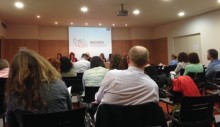


 The panel sessions carried on the discussion on the various terms definitions for the all morning. In the afternoon, all the group participants brought back together and the chairmen/chairwomen shared their agreed definitions with the public during a final discussion, in order to validate them.
The panel sessions carried on the discussion on the various terms definitions for the all morning. In the afternoon, all the group participants brought back together and the chairmen/chairwomen shared their agreed definitions with the public during a final discussion, in order to validate them.
 In addition to the workshop’s celebration, the RICHES Consortium Partners joined for internal Plenary Meeting, one day before and after the workshop in order to discuss the work so far undergone, value the workshop’s results and plan their future research and management activities.
In addition to the workshop’s celebration, the RICHES Consortium Partners joined for internal Plenary Meeting, one day before and after the workshop in order to discuss the work so far undergone, value the workshop’s results and plan their future research and management activities. RICHES on Twitter: #richesEU
RICHES on Twitter: #richesEU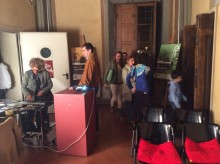
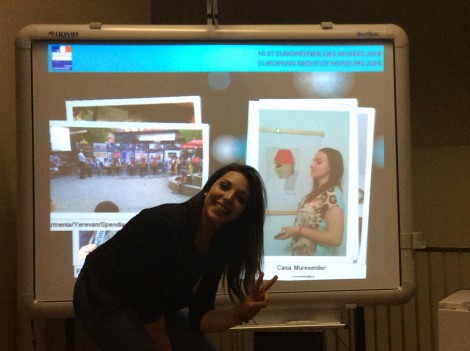
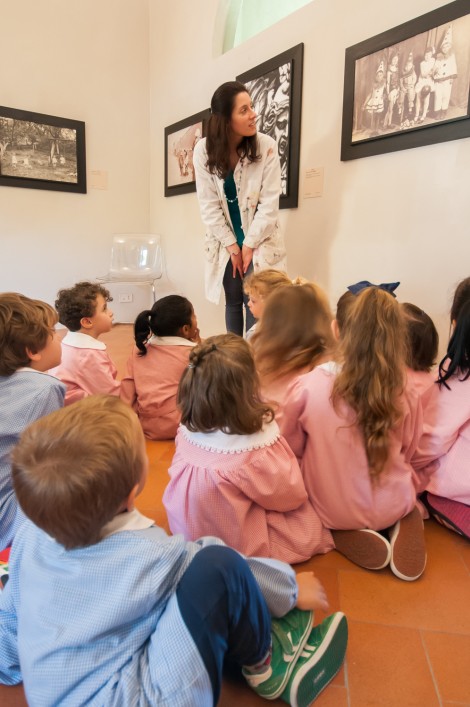
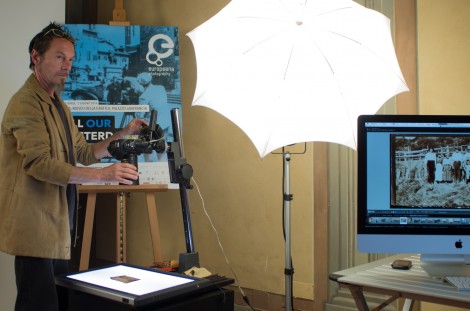




















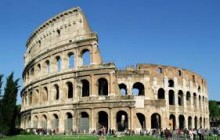
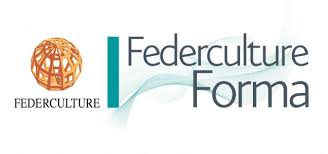 FEDERCULTURE (Italian federation of companies and corporations for the management of culture, tourism, sport and free-time) restarts its training project. On the 20th of May 2014, in Rome, was held the first course of a cycle devoted to deepening several aspects of the cultural services management: fundraising techniques, information day about the next EU announcements for culture, fiscal issues of sponsorship, new frontiers of cultural marketing.
FEDERCULTURE (Italian federation of companies and corporations for the management of culture, tourism, sport and free-time) restarts its training project. On the 20th of May 2014, in Rome, was held the first course of a cycle devoted to deepening several aspects of the cultural services management: fundraising techniques, information day about the next EU announcements for culture, fiscal issues of sponsorship, new frontiers of cultural marketing.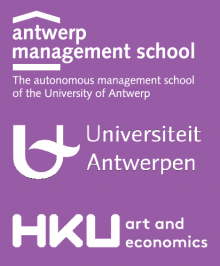
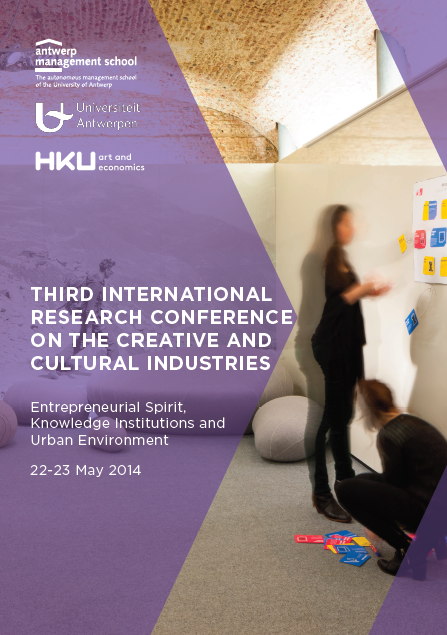
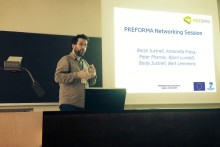
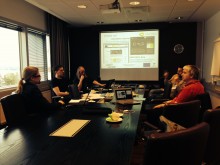 After the session, the representatives of PREFORMA reached CSC – IT Center for Science for a meeting with people involved with the Finnish Digital Library, to present the project and to discuss about how PREFORMA can help to improve the digital preservation service of the National Digital Library and of other Finnish memory institutions.
After the session, the representatives of PREFORMA reached CSC – IT Center for Science for a meeting with people involved with the Finnish Digital Library, to present the project and to discuss about how PREFORMA can help to improve the digital preservation service of the National Digital Library and of other Finnish memory institutions.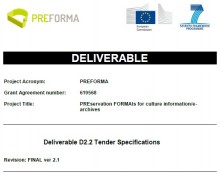

 The SCAPE project invites you to a demo day where you can meet some of the SCAPE developers in their own environment. The developers will show you how you can benefit from the project results by integrating tools and services developed in SCAPE in your own preservation environment.
The SCAPE project invites you to a demo day where you can meet some of the SCAPE developers in their own environment. The developers will show you how you can benefit from the project results by integrating tools and services developed in SCAPE in your own preservation environment. If you have interesting news and events to point out in the field of digital cultural heritage, we are waiting for your contribution.
If you have interesting news and events to point out in the field of digital cultural heritage, we are waiting for your contribution.





























